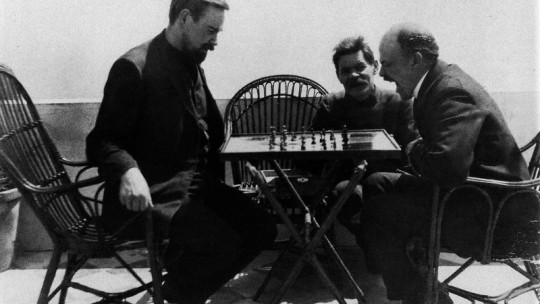
The construct of intelligence is one of the great triumphs of scientific Psychology and, at the same time, a topic that generates great debates and controversies.
When this type of discussion includes the religion, the mixture is explosive. Especially if we start from a meta-analysis published in the journal Personality and Social Psychology Review, whose conclusions indicate that the most intelligent people also tend to be less believers than the rest. At least, that’s what the statistics show.
Related article: “People on the left are more intelligent”
How does the study was realized?
This investigation It is an analysis of a multitude of studies already done on intelligence and belief in religions That is, it is a kind of summary that offers a conclusion that encompasses the results of many investigations that deal with a similar topic.
Specifically, to obtain the results, 63 studies were selected that address a common topic from somewhat different methodologies: the relationship between IQ (or, in some cases, exam performance) and the degree to which people believe in a religion. , in various parts of the planet. With this data, The scientists synthesized all the information obtained about the different variables and compared the results on both scales.
The results
Of the 63 studies, 33 showed a statistically significant negative correlation between intelligence and religiosity That is to say, in these investigations a general tendency had been detected for more intelligent people to be less religious. In another 10 cases, the correlation was positive, since they revealed an inverse trend to that of the rest.
Why is this happening?
The researchers propose three explanations, although none of them have been tested (since that was not the objective of the study).
The first explanation highlights the fact that The most intelligent people are also the most curious and most likely to question certain rules and patterns of thinking imposed from outside. In this sense, it is easy for someone with a high level of IQ to reject certain ideas coming from religious tradition and prefer to “go it alone” when it comes to explanations about reality, especially if in the society in which lives religious orthodoxy is very strong.
The second explanation relates high intelligence to the tendency to think logically and base beliefs on empirical evidence. That is, more intelligent people would tend to resist ideas that cannot be rejected or validated through traditional logic and analytical thinking.
The third explanation, and perhaps the most interesting, arises from the idea that, although religion has been useful to humanity throughout great stages of our history, There are more and more people whose mental abilities make belief in an afterlife unnecessary That is to say, intelligence is replacing religion in the functions that it previously fulfilled: providing an explanation about the world, giving an orderly and predictable vision of reality, and even generating well-being through self-esteem and a feeling of belonging. in society.
Does that mean that if I am a believer I am less intelligent?
Not at all. This investigation It is still a meta-analysis whose objective is to detect statistical trends which means that only patterns that are visible in a very large number of people are described.
Furthermore, there is something that always has to be taken into account: Correlation does not imply causation This means that less believing people may be statistically smarter simply because, for social and economic reasons, they tend to live in richer societies than the rest, which means that they have enjoyed a better quality of education and healthcare than the rest. Intelligence, remember, does not exist isolated from the physical world, and if it cannot be developed well due to a context full of deficiencies, this will be reflected in IQ tests.
However, it must be taken into account that in this meta-study the influence of three relevant variables was isolated when it came to seeing the relationship between religiosity and intelligence. These variables were sex, education level, and race.








